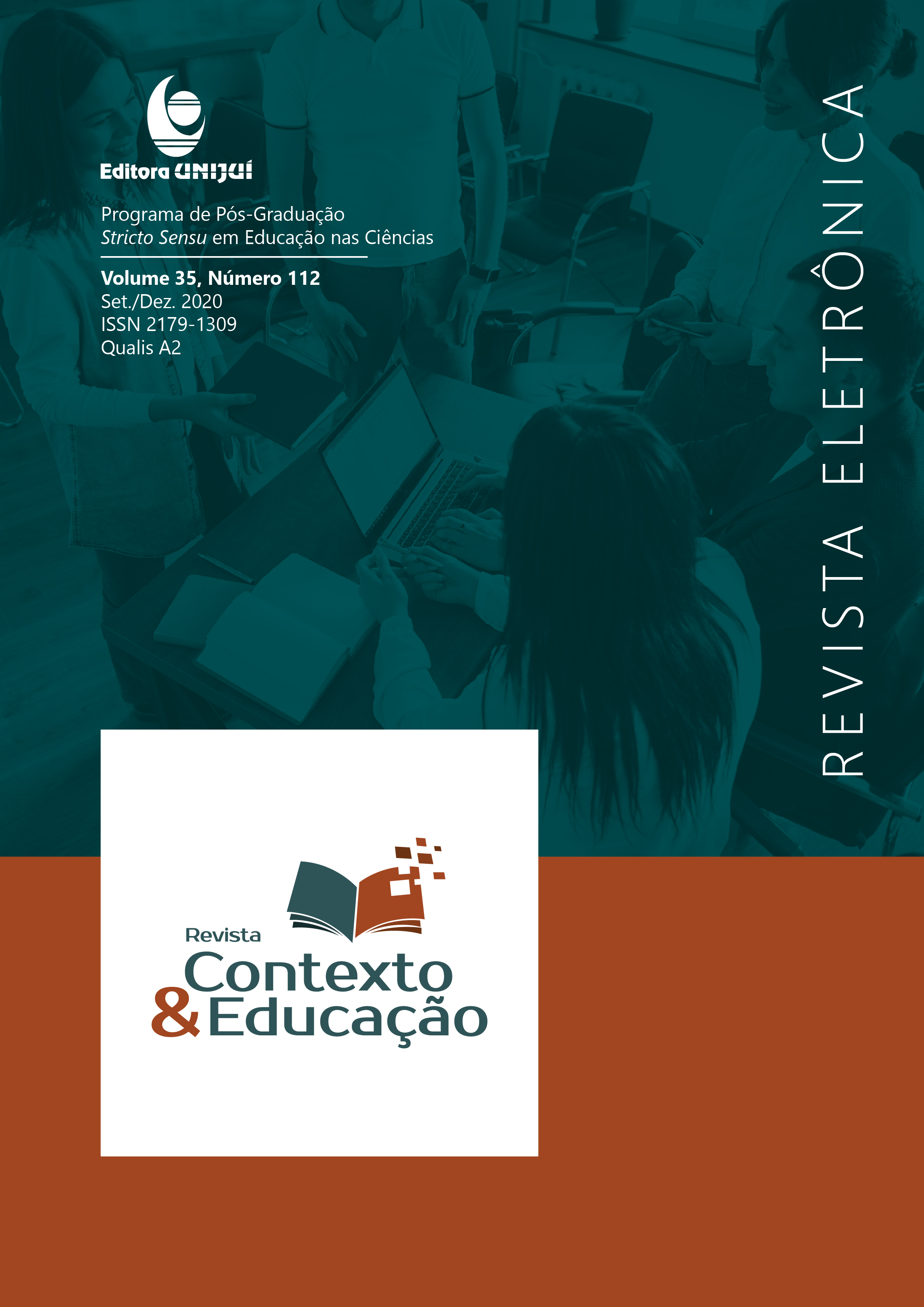O CONCEITO DE ENSINO MÉDIO INTEGRADO: UM CONFRONTO ENTRE DOCENTES LICENCIADOS E DOCENTES BACHARÉIS
DOI:
https://doi.org/10.21527/2179-1309.2020.112.102-116Palavras-chave:
Ensino Médio Integrado, Currículo Integrado, Educação Profissional e TecnológicaResumo
Resumo: O Ensino Médio Integrado (EMI) ao curso técnico convive com múltiplas interpretações entre os próprios profissionais da educação. Este artigo é resultado de uma pesquisa que objetivou investigar, por meio de entrevistas individuais com 16 docentes efetivos, a origem dessa dessemelhança do conceito de integração de ensino, na tentativa de descobrir se o tipo de graduação acadêmica (licenciatura ou bacharelado) dos docentes interfere na construção desse conceito. A base teórica deste artigo se apoiou em Ramos (2008), Ciavatta (2005) e Araújo e Frigotto (2015). Como resultado da pesquisa, identificamos que todos os 16 docentes interpretam, por um viés funcional, o conceito de integração de ensino da mesma maneira, ou seja, implementar a educação profissional harmoniosamente às disciplinas propedêuticas, tais como matemática, língua portuguesa, geografia, biologia e etc., de forma que o conhecimento para a vida e para o trabalho sejam construídos de forma indivisível. Por outro lado, em um viés holístico, apenas cinco docentes acreditam que a integração deva ser fundamental não somente no momento das escolhas metodológicas para a exposição dos conteúdos, mas também nas etapas de planejamento e avaliação, por exemplo, entendendo o curso como integrado por completo.
Palavras-chave: Ensino Médio Integrado. Formação integrada. Licenciatura. Bacharelado. Concepção.
Downloads
Publicado
Como Citar
Edição
Seção
Licença
Ao publicar na Revista Contexto & Educação, os autores concordam com os seguintes termos:
Os trabalhos seguem a licença Creative Commons Atribuição 4.0 Internacional (CC BY 4.0), que permite:
Compartilhar — copiar e redistribuir o material em qualquer meio ou formato;
Adaptar — remixar, transformar e criar a partir do material para qualquer fim, inclusive comercial.
Essas permissões são irrevogáveis, desde que respeitados os seguintes termos:
Atribuição — os autores devem ser devidamente creditados, com link para a licença e indicação de eventuais alterações realizadas.
Sem restrições adicionais — não podem ser aplicadas condições legais ou tecnológicas que restrinjam o uso permitido pela licença.
Avisos:
A licença não se aplica a elementos em domínio público ou cobertos por exceções legais.
A licença não garante todos os direitos necessários para usos específicos (ex.: direitos de imagem, privacidade ou morais).
A revista não se responsabiliza pelas opiniões expressas nos artigos, que são de exclusiva responsabilidade dos autores. O Editor, com o apoio do Comitê Editorial, reserva-se o direito de sugerir ou solicitar modificações quando necessário.
Somente serão aceitos artigos científicos originais, com resultados de pesquisas de interesse que não tenham sido publicados nem submetidos simultaneamente a outro periódico com o mesmo objetivo.
A menção a marcas comerciais ou produtos específicos destina-se apenas à identificação, sem qualquer vínculo promocional por parte dos autores ou da revista.
Contrato de Licença (para artigos publicados a partir de outubro/2025): Os autores mantém os direitos autorais sobre seu artigo, e concedem a Revista Contexto & Educação o direito de primeira publicação.


